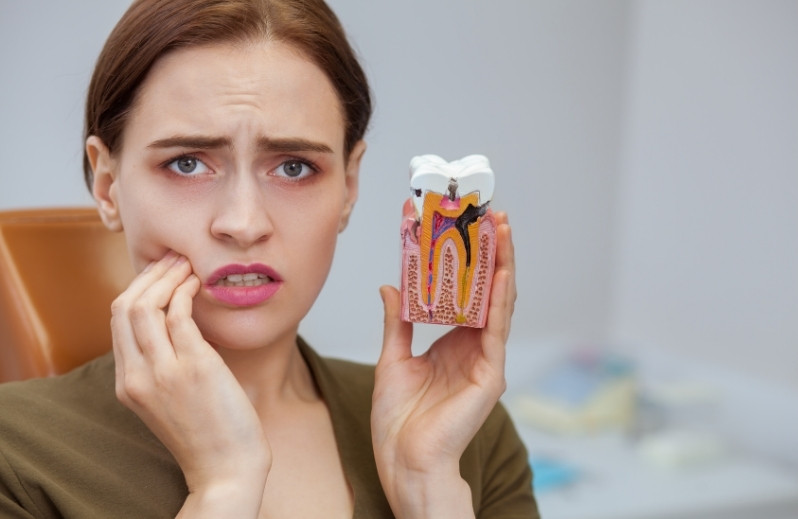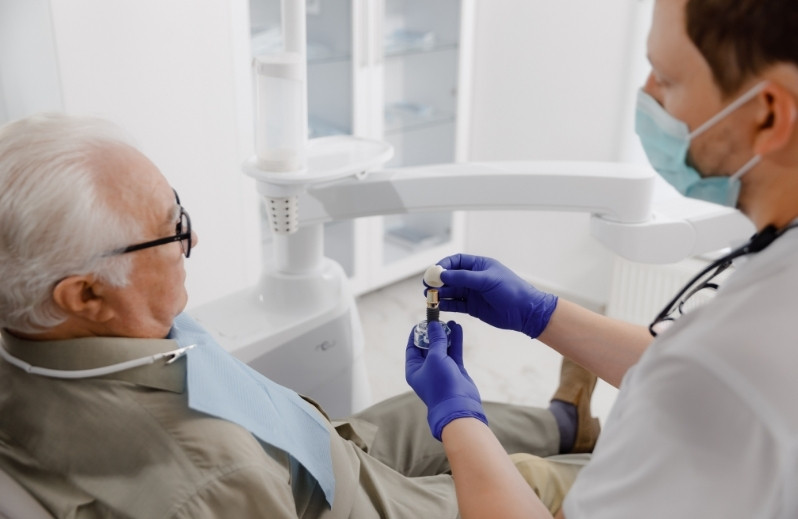
A dental emergency can strike at any moment, often leaving you in severe pain or with an urgent need for treatment. Whether it’s a sudden toothache, a knocked-out tooth, or a broken crown, knowing what to expect during an emergency dentistry appointment can help ease your mind and guide you toward the right actions.
In this blog, we’ll explore the steps you can expect during an emergency dental visit and how an emergency dentist will ensure quick relief and proper care.
First Emergency Dental Appointment: A Breakdown
1. Immediate Triage: Assessing the Situation
The first thing you’ll experience during an emergency dental visit is the triage process. Just like when you go to the ER, a dentist will need to assess the severity of your dental issue before diving into treatment. This helps determine the priority of your care.
What to Expect:
- Patient Intake: Upon arrival, you’ll be asked to fill out any necessary paperwork (or provide updates if you’ve seen the dentist before).
- Urgency Assessment: The dental team will quickly assess how urgent the situation is. Severe pain, excessive bleeding, or a broken tooth with visible nerve exposure might be prioritized over minor discomfort.
Tip:
Be prepared to describe your symptoms in detail, including when the problem started and any other relevant medical history, such as allergies or medication.
2. X-rays and Diagnosis: Pinpointing The Problem
Once your dental emergency is assessed, the dentist will often take X-rays to get a clearer picture of the damage. Whether you’re dealing with a cracked tooth, a cavity causing pain, or an abscess, X-rays help the dentist determine the best course of action in emergency dentistry in Penn Township.
This diagnostic tool is essential in guiding your treatment plan, ensuring that the issue is addressed promptly and effectively.
What to Expect:
- X-ray Imaging: Depending on the issue, the dentist will take X-rays to identify any underlying problems that may not be visible to the naked eye.
- Diagnosis: After reviewing the X-rays and examining your mouth, the dentist will provide a diagnosis and discuss treatment options with you.
Tip:
While dental X-rays may seem intimidating, they’re a safe and essential tool to ensure accurate diagnosis and treatment, especially in emergencies.
3. Pain Management: Relieving Discomfort Quickly
In most dental emergencies, pain management will be a top priority. Whether you’re going through excruciating tooth pain from an infection or discomfort from a broken tooth, our dentist will aim to relieve the pain as quickly as possible.
What to Expect:
- Local Anesthesia: For most procedures, the dentist will administer a local anesthetic to numb the affected area and ensure you’re as comfortable as possible.
- Sedation Options: If you’re particularly anxious or if the procedure requires a more invasive approach, dentists may offer sedation options to help you relax.
Tip:
If you’re nervous about pain or procedures, don’t hesitate to speak up. Dentists understand the importance of managing both physical and emotional discomfort.
4. Treatment: Addressing The Dental Emergency
Once the pain is under control, the emergency dentist will proceed with treatment to fix the problem. The specific treatment will depend on the nature of your emergency.
Common Emergency Dental Treatments:
- Tooth Extractions: If a tooth is beyond saving, extraction may be necessary. This is common for severely decayed or broken teeth.
- Root Canal Therapy: If an infection has spread to the root of the tooth, a root canal may be performed to remove the infection and save the tooth.
- Crowns and Fillings: For a cracked or damaged tooth, dentists may place a crown or filling to restore its structure.
- Tooth Replacement: In cases of a knocked-out tooth, a dental professional will assess whether re-implantation is possible or if a dental implant is needed.
- Abscess Drainage: If you have an abscess, dentists will drain the infection and may prescribe antibiotics.
Tip:
Emergency treatments aim to stabilize your condition and prevent further damage. If more complex procedures are required, the professionals may schedule a follow-up appointment.
5. Post-Treatment Care: Ensuring a Smooth Recovery
After the immediate treatment is complete, our dentist will provide post-care instructions to help with healing and prevent complications.
What to Expect:
- Care Instructions: You’ll receive detailed instructions on how to care for the treated area, including what foods to avoid, how to manage pain at home, and when to schedule a follow-up visit.
- Pain Relief: Over-the-counter pain relievers are often recommended, but a dentist may also prescribe medication if necessary.
- Possible Follow-up Visits: Depending on the severity of the emergency, follow-up visits may be necessary to ensure proper healing or to complete any ongoing treatments.
Tip:
Adhering to post-treatment care instructions is essential for a smooth recovery. Avoid hard or chewy foods and follow dentist’s advice closely.
6. Preventing Future Dental Emergencies: How To Protect Your Smile?
After your emergency dental treatment, the goal is to prevent future emergencies. Our dentist will likely provide tips and recommendations to improve your dental hygiene and protect your teeth.
What to Expect:
- Customized Advice: Based on your specific dental emergency, dentist will provide advice on how to avoid similar situations in the future.
- Oral Health Checkups: Regular visits to the dentist are crucial for catching issues early, reducing the likelihood of major emergencies.
- Preventive Products: Dentists might recommend mouthguards for sports, nightguards for teeth grinding, or fluoride treatments to strengthen your enamel.
Tip:
Maintaining good oral hygiene and regular dentist visits are key to preventing future dental emergencies. The better you care for your teeth, the less likely you are to face urgent dental problems.
Taking Action, Getting Relief!
Dental emergencies can be unsettling, but Emergency dentistry can often help you avoid long-term damage and pain. During an emergency dental appointment, our dentist will assess your condition, manage pain, and provide appropriate treatment.
With the proper aftercare and preventive steps, you can protect your oral health and avoid future emergencies. Remember, in the event of a dental emergency, don’t hesitate to contact our trusted dentist for immediate assistance.
Taking action quickly can make a huge difference in the outcome of your treatment and recovery.




